Category: public health
Public Health Impact of Digital Health: Reinventing the Wheel
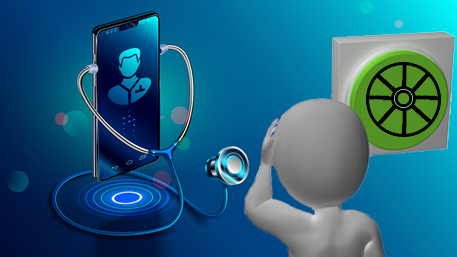
“Digital health has potential to improve health management, but the current state of technology development and deployment requires a “buyer beware” cautionary note.” (Perakslis and Ginsburg, JAMA, 2020) In a recent JAMA viewpoint, Perakslis and Ginsburg summarize the current state of digital health and discuss approaches in evaluating benefits, risks and value of these technologies. Read More >
Posted on by2020: A Challenging Year of Progress for Genomics and Precision Public Health
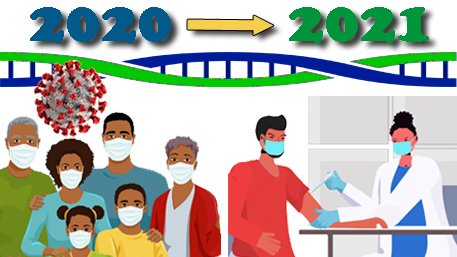
It is time to wrap up an eventful 2020 which unfortunately was dominated by the COVID-19 pandemic. From January 2020 through November 2020, we saw a major increase in visits to our website (> 2.6 million views, compared to 2 million views in 2019 and 1.2 million views in 2018). In our year end blog, Read More >
Posted on byA New Vision for Using Genomics to Improve Health: An Expanded Role for Public Health
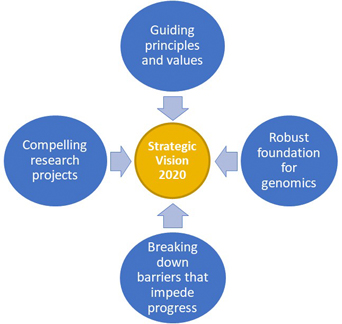
The National Human Genome Research Institute (NHGRI) recently published a new strategic vision 2020 to identify research priorities and opportunities in human genomics for improving health. The framework includes four main areas: guiding principles and values, a robust foundation for genomics, breaking down barriers that impede progress, and compelling research projects. Since the completion of Read More >
Posted on by 1 CommentArtificial Intelligence, Public Trust, and Public Health

As a data-driven agency, CDC has always had highly skilled statisticians and data scientists. As part of the Data Modernization Initiative, CDC is supporting strategic innovations in data science using artificial intelligence and machine learning (Ai/ML). Ai/ML is the practice of using mathematics with computers to learn from a wide range of data and make Read More >
Posted on byThe Public Health Impact of COVID-19: Why Host Genomics?

Throughout human history, zoonotic pandemics have periodically resulted in catastrophic human morbidity and mortality exceeding war, famine, and natural disasters combined. Modern era medicine and public health have made remarkable advances, but vulnerabilities have also increased with unprecedented world population growth, greater interaction with wildlife, and the dramatic expansion of international air travel. Viral diseases Read More >
Posted on by 1 CommentIn the Era of Public Health Emergencies, Interoperability Rules are a Beacon for More Precision in Public Health
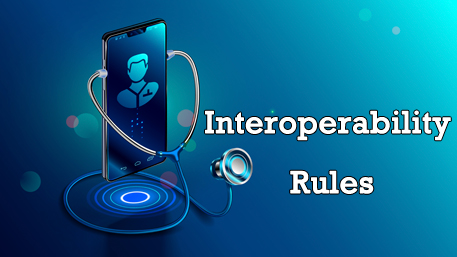
In the current wake of COVID-19, it is evident that the public health ecosystem needs to modernize how we gather, make sense of, and disseminate data from multiple sources. The health threats we face today spread wider and change faster than the data flows our traditional approaches were designed to accommodate. Becoming more adept with Read More >
Posted on byA 2020 Reality Check on the Public Health Impact of Cancer Genomics and Precision Medicine

“Precision oncology has had some major successes… And yet, the overall effect of precision medicine on care for patients with cancer has been modest.” (David Cutler, JAMA Health Forum, 2020) The Promise of Genomics and Precision Medicine in Reducing the Burden of Cancer In 2015, the United States launched the Precision Medicine Initiative (PMI) “to Read More >
Posted on byPublic Health Perspectives on Ensuring Life Long Benefits of Newborn Screening

This blog post is a summary of a Perspective recently published in Pediatrics that was authored by Alex Kemper of Nationwide Children’s Hospital, Jeffrey Brosco of the Miller School of Medicine, University of Miami, and Coleen Boyle and Scott Grosse of CDC’s National Center on Birth Defects and Developmental Disabilities. Newborn screening is a highly Read More >
Posted on byWhy should early career public health researchers pay attention to precision medicine?
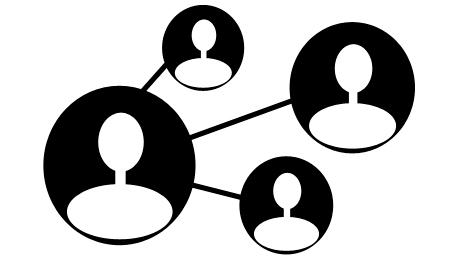
In a recent commentary published in the American Journal of Public Health, I had the privilege of working with a group of early career investigators to begin a conversation about the impact that the debate between the utility of precision medicine and public health approaches is having as we begin our research careers. To begin, let’s Read More >
Posted on byThe Road Less Traveled: Genomic Epidemiology Capacity in State Public Health Programs

In 2017, the Council of State and Territorial Epidemiologists (CSTE) published its latest Epidemiology Capacity Assessment of state health departments’ workforce size and resources. The assessment inquired about the number of current and optimal epidemiologist positions; sources of epidemiology activity and funding; and states’ self-perceived capacity to lead epidemiology activities, provide expertise, and manage resources Read More >
Posted on by

